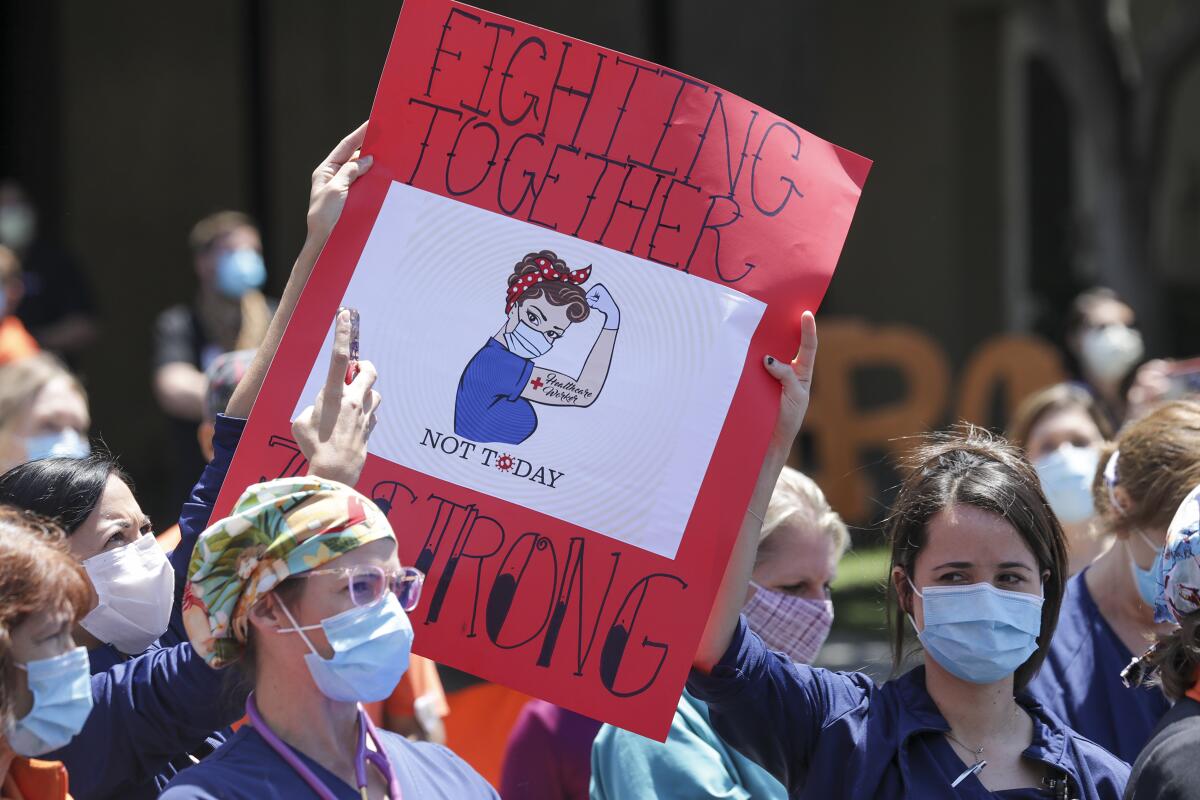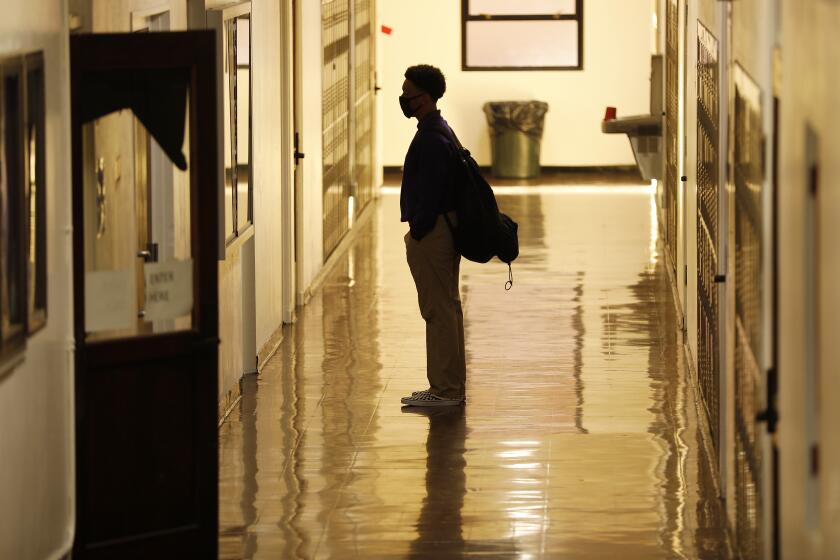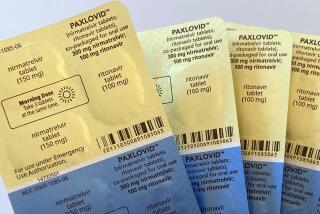Op-Ed: My friend the nurse who gives her all needed help. The healthcare system let her down

My friend is a healthcare worker.
My friend is the healthcare worker you would want at your bedside in a medical crisis.
A registered nurse at a community health center, she has spent the last two years connecting underserved patients with therapeutics for COVID, driving unhoused COVID-positive patients to the infusion center for monoclonal antibody treatments to prevent worsening infection.
She made pharmacy runs to pick up and hand-deliver Paxlovid, a COVID antiviral medication that reduces the risk of hospitalization and death from COVID by almost 90%.
She has paid out of her own pocket for medications for low-income patients and has purchased groceries, supplies and Lyft rides for them. These goodness-of-her-heart costs have run into the thousands.
What follows is a healthcare horror story in the age of COVID. What happens is not unique to any one hospital system, care facility or the clinicians she encountered. I’ve been a doctor long enough to know this could have happened anywhere.
My nephews come home from school with tales of COVID and quarantine while the school district’s reassurances ring hollower with every email.
During the pandemic, my friend has worked thousands of hours in unpaid overtime serving patients who have the least and need the most.
When she spoke up about understaffing in her workplace, she was told to “do the best with what you have.” When she spent hours into the night dealing with yet another patient crisis, she was accused of not setting boundaries. When she confessed that she was struggling, she was treated to pep talks about “self care.”
After one colleague died from an overdose and another showed up drunk to the morning funeral, someone was brought in to do guided meditations at the beginning of meetings. There was no institutional acknowledgment of systemic issues in the workplace.
She kept thinking that it would be a sprint — that she just needed to push harder for a little bit longer till the pandemic ended.
But it never seemed to end.
When she finally managed to take a week off, she learned yet another colleague was having severe mental health issues and was going on leave. With ever-increasing dread, my friend started counting down the days until she had to return to work.
She realized she needed help. And so she called her HMO and asked for some.
She was told to call back in the morning.
The night before she was to return to work, my friend, the healthcare worker, swallowed 495 pills with the intent of not waking up.
She did not succeed.
Before the sun rose, her partner found her slumped over and semiconscious, surrounded by so many empty pill bottles that even the paramedics felt the need to remark on the impressive quantity.
My friend was then hospitalized. She was not allowed to use her insulin pump that keeps her Type 1 diabetes under control, so she became extremely sick. Because of COVID restrictions, her partner could not be by her side and had to advocate for her care over the phone.
My friend was then transferred to an HMO-approved facility, where she did not have access to care from the mental health specialists she needed. The facility was grossly understaffed, and the mask-wearing by staff was erratic.
My friend developed a cough. She asked the facility if she could take a COVID test. The staff said they did not have any.
My grandmother was a Kamala, and now, so is my vice president. Why that means so much to me and so many others.
She was discharged and sent home without a plan in place for her ongoing care.
She took an at-home COVID test. It was positive.
As a Type 1 diabetic with COVID, she knew her risk for developing complications was high — and that she had a small window of time to take the antiviral Paxlovid. She called her HMO, but the doctor refused to prescribe it.
When I found out, I was livid. I insisted she call the HMO back and demand the medication. She was told that someone would return the call in 12 hours.
It took the better part of a morning and conversations with four pharmacists over two counties, but I was finally able to get her the needed Paxlovid.
The day after she took her first dose, her partner tested positive.
The next week, my friend couldn’t get the mental health care she needed. Her insurance would pay only for a daily Zoom support program. To help her battle the trauma and cumulative depression, anxiety, post-traumatic stress disorder and the resultant self-medicating that landed her in that semiconscious state surrounded by empty pill bottles, she was supposed to heal by sitting in front of a screen for five hours a day over three weeks.
At the start of the pandemic, healthcare workers were lauded as heroes, celebrated by the banging of pots and hanging of proud posters, thanked with free doughnuts, told that they were valued, that their sacrifices mattered.
Like so many others, my friend, the healthcare worker with a heart of gold, spent the last two years giving all she could till she had nothing left to give.
And when it was finally her turn to ask for help, the healthcare system failed to come through.
Dipti S. Barot is a primary care doctor at a clinic in the San Francisco Bay Area. @diptisbarot
More to Read
A cure for the common opinion
Get thought-provoking perspectives with our weekly newsletter.
You may occasionally receive promotional content from the Los Angeles Times.












